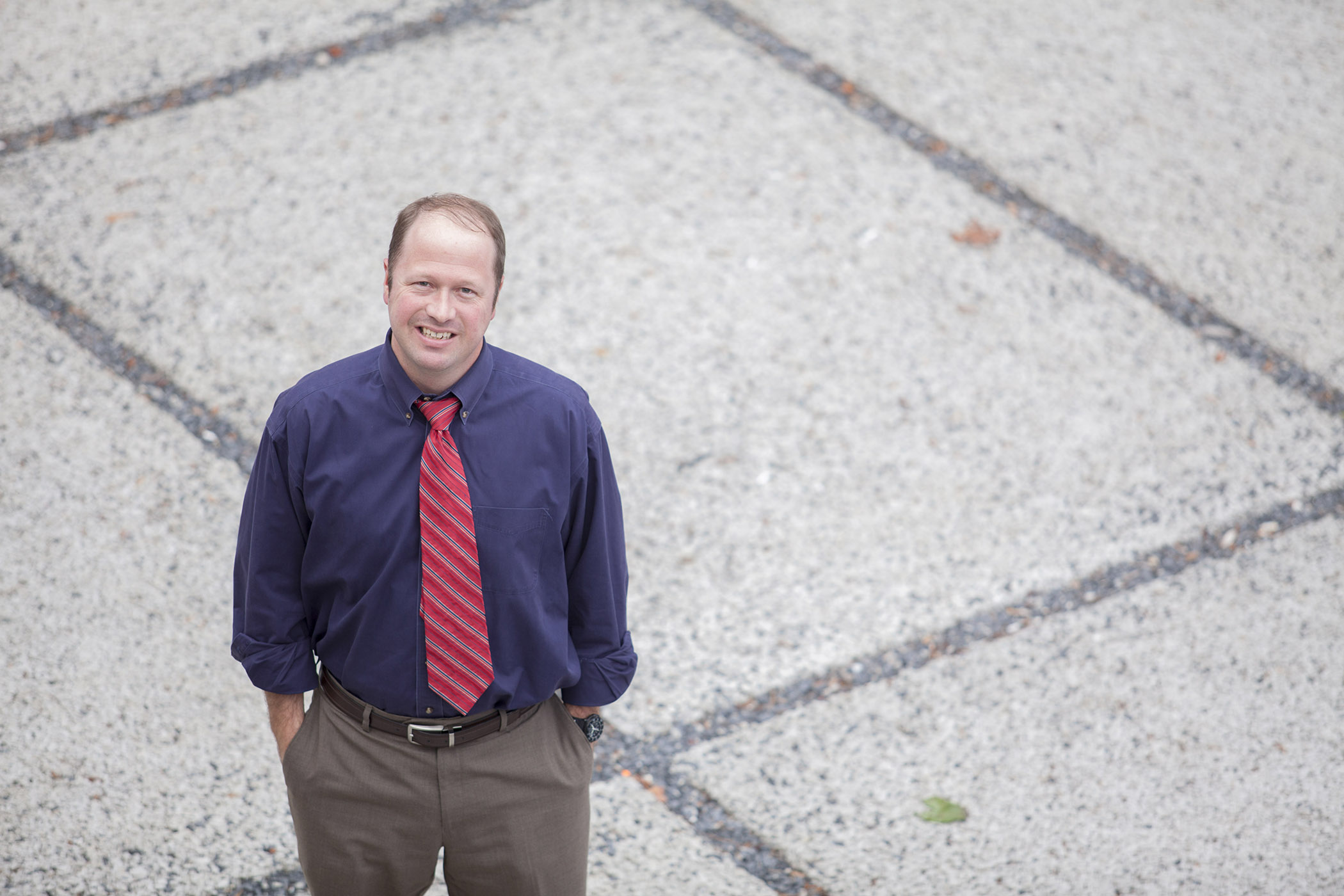When Stephan Durham teaches his students about civil engineering, he hopes they take away not just classroom instruction but life lessons as well.
An associate civil engineering professor in the College of Engineering, Durham aspires to challenge his students to reach their full potential and apply the concepts learned in class to real-life situations. Through the use of anecdotal personal experiences and tangible educational tools, Durham connects the theories and academic applications of the information he teaches in the classroom to the professional world.
“Although it may not be written on the syllabus, Dr. Durham teaches his students passion and curiosity within their fields of interest,” said Scotty Smith, a civil engineering student from Duluth and president of the UGA student chapter of the American Society of Civil Engineers. “His apparent love for what he does, whether it be teaching introductory freshman courses or directing his graduate students’ research, inspires students to take action and invest in their education.”
Within the civil engineering program, Durham specializes in structural materials and concrete sciences. His research emphasis within these fields has primarily focused on how to make concrete—the most used man-made material in the world—more sustainable and less deleterious to the environment.
Durham came to UGA in 2012 to develop the civil engineering program with fellow faculty members Sidney Thompson, Mi Guem Chorzepa, Brock Woodson and Siddharth Savadatti.
Durham graduated with his bachelor’s, master’s and doctoral degrees from the University of Arkansas. He had not aspired to be a teacher until he taught a laboratory course while working on his master’s degree. The experience inspired him to earn his doctorate and pursue a teaching career.
In 2005, Durham joined the civil engineering department at the University of Colorado in Denver, where he developed a concrete materials research program.
Now, Durham teaches many classes in the engineering college. Throughout the courses, Durham continuously connects the technical and fundamental concepts to the practical application of engineering. The first students will graduate from the program in spring 2015, which will make the program eligible for ABET accreditation. ABET is an accrediting organization for academic programs in applied science, computing, engineering and engineering technology.
Along with teaching and his role as a program coordinator, Durham helped lead the effort for a structural engineering lab called STRENGTH Laboratory at the Engineering Research and Education Center. With a strong 26-foot-high wall and 6-foot-thick concrete floor, the laboratory can be used for experimenting with everything from earthquakes to bridge beam testing.
Durham said he hopes his teaching will leave students with the ability to apply their technical knowledge and practical know-how to solve engineering problems and that they will continue their desire to learn, openly listen to others and their ideas and understand the importance of being kind and respectful to others.
“If students leave our program with these attributes, they are well on their way to being successful engineers and community leaders,” he said.


